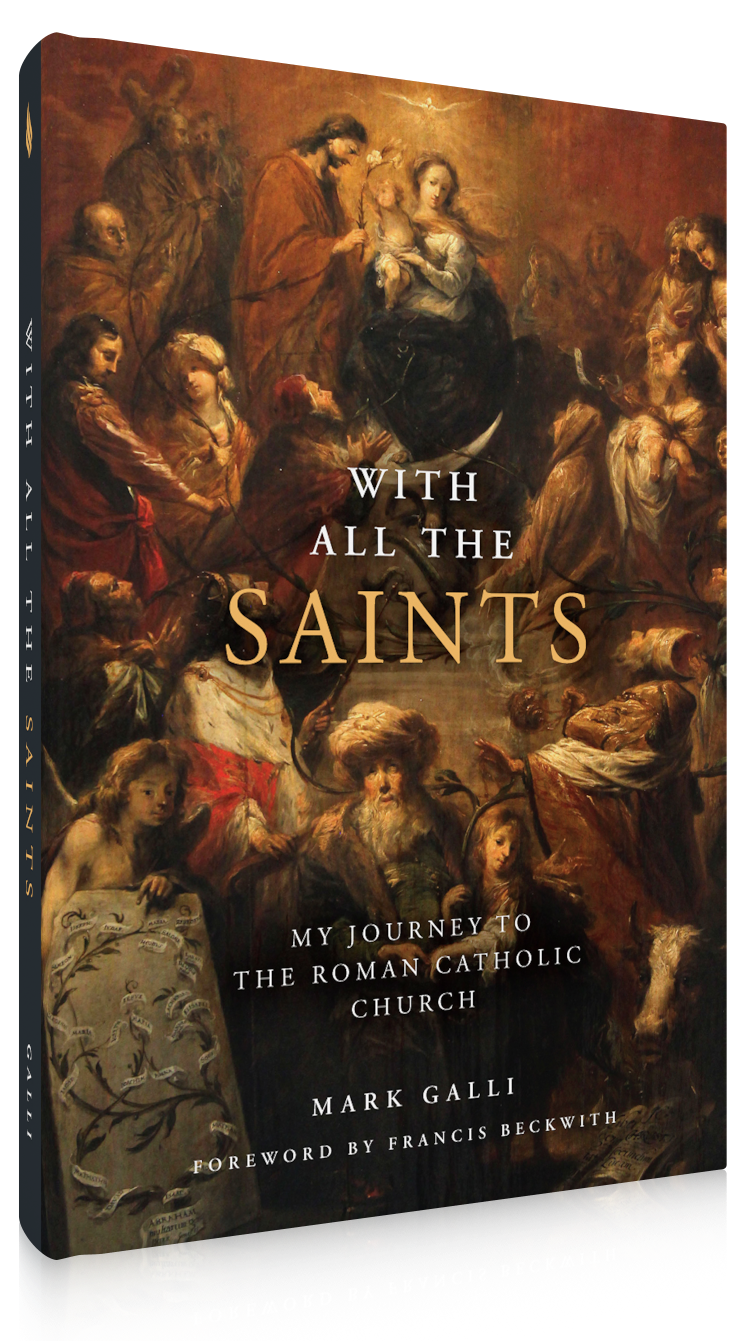

Questions? Need help placing your order?
Email us at sales@wordonfire.org or call 866-928-1237.
Questions? Need help placing your order?
Email us at sales@wordonfire.org or call 866-928-1237.
CUSTOM JAVASCRIPT / HTML
Redeeming the Time: Gospel Perspectives on the Challenges of the Hour
ABOUT the BOOK
The past several years have been a time of tremendous challenge. From the COVID-19 pandemic that afflicted the world, to the political polarization that unsettled the nation, to the division, disaffiliation, and scandal that rocked the Church, Catholics everywhere have been filled with fear, burdened by pain, and longing for hope.
In Redeeming the Time, Bishop Robert Barron follows the wisdom of St. Paul in Ephesians 5 and boldly shines the light of the Gospel into our dark hour. Sorting through our moral, intellectual, social, political, and ecclesial turmoil, this collection of essays is a timely reminder that our hope—especially when things seem hopeless—is always found in Christ and his Church.
ABOUT the AUTHOR

Bishop Robert Barron is Bishop of the Diocese of Winona-Rochester, the founder of Word on Fire Catholic Ministries, and an acclaimed author, speaker, and theologian. He is also the creator and host of the groundbreaking CATHOLICISM series. Word on Fire, a nonprofit global media apostolate that supports the work of Bishop Barron, reaches millions of people to draw them into—or back to—the Catholic faith.
AN EXCERPT from the FOREWORDby John L. Allen Jr.

With regard to current events, the perennial temptation of Christianity is to become either too vertical or too horizontal. That is, we end up either so obsessed with otherworldly contemplation as to be completely detached from what’s happening just outside the doors of the chapel, or so invested in a social or political program as to all but ignore the spiritual dimension of human existence and destiny. The more subtle form of the same temptation, probably, is to think the solution is a neat mathematical 50/50 split, with half one’s time devoted to the here and now and the other half to the life beyond.
Naturally, the proper Catholic answer is something different entirely—it’s “both/and.” The aim is a life utterly tied up in the hurly and burly of the day, and, at the same time, totally permeated by the transcendent. Put simply, the trick is to be completely horizontal and completely vertical at the same time.
In recent Catholic life, the best example was St. John Paul II, the would-be Carmelite mystic whose entire life radiated spiritual depth, but who was also at least as well-informed and engaged in the nitty-gritty of geopolitics and the movements of history as most secular politicians and diplomats of his era. In today’s America, the best public example we have of that capacity to fully incarnate the horizontal and the vertical is probably Bishop Robert Barron, founder of Word on Fire, as this collection of essays abundantly illustrates.
Certainly no one could accuse Barron of paying short shrift to the spiritual. His best-known works aren’t commentaries on current affairs but artful expositions of the perennial faith of the Catholic Church, crafted by someone who’s clearly drenched in belief. While Catholicism has many fine evangelists, however, Barron’s particular gift is to make the Church’s timeless tradition nevertheless seem timely by addressing it to the peculiar zigs and zags of the postmodern era, from our quasi-Jansenist fundamentalism about science to our toxic addiction to snark.
At one point Barron evokes St. John Henry Newman to the effect that the Church moves through a culture like a foraging animal in a forest, taking advantage of what it can and fighting off what it must. This book captures Barron at both his foraging and his fighting best.
John L. Allen Jr.
Foreword - John L. Allen Jr.
PART I – FIGHTING THE SEXUAL ABUSE CRISIS
PART II – REACHING THE “NONES”
17 - The Least Religious Generation in US History:
A Reflection on Jean Twenge’s iGen
20 - Spinoza, Secularism, and the Challenge of Evangelization
23 - Getting Out of the Sacristy: A Look at Our Pastoral Priorities
26 - Blasting Holes through the Buffered Self
29 - Bill Nye Is Not the Philosophy Guy
32 - Stephen Hawking: Great Scientist, Lousy Theologian
35 - Doctor Strange, Scientism, and the Gnostic Way Station
38 - The Jordan Peterson Phenomenon
41 - Listening to Jordan Peterson and Sam Harris
44 - The USCCB Meeting, Jordan Peterson, and the “Nones”
47 - What I Learned Talking with Thousands of Skeptics on Reddit
50 - Apologists, Catechists, Theologians: Wake Up!
54 - A New Apologetics: An Intervention at the Youth Synod
57 - Why Accompaniment Involves Apologetics
60 - Black Elk and the Need for Catechists
63 - Go in Haste! Be Amazed! Treasure!
23 - Getting Out of the Sacristy: A Look at Our Pastoral Priorities
29 - Bill Nye Is Not the Philosophy Guy
35 - Doctor Strange, Scientism, and the Gnostic Way Station
41 - Listening to Jordan Peterson and Sam Harris
47 - What I Learned Talking with Thousands of Skeptics on Reddit
54 - A New Apologetics: An Intervention at the Youth Synod
57 - Why Accompaniment Involves Apologetics
63 - Go in Haste! Be Amazed! Treasure!
PART III – RESISTING THE CULTURE OF CONTEMPT
69 - Social Media and the Culture of Contempt
72 - The Internet and Satan’s Game
75 - Pride, Humility, and Social Media
78 - Thomas Aquinas and the Art of Making a Public Argument
81 - Kathy Griffin and the Vanishing of Argument
84 - Violence against Christians and the Waning of Reason
87 - Love an Enemy This Lent
75 - Pride, Humility, and Social Media
81 - Kathy Griffin and the Vanishing of Argument
87 - Love an Enemy This Lent
PART IV – CONFRONTING MORAL CHAOS
93 - The Crown and the Fundamental Values of a Society
96 - Paul Tillich and The Shape of Water
99 - Breaking Out of the Prison of Self-Invention
102 - The Doritos Commercial and the Revival of Voluntarism
105 - Hannah Arendt, Totalitarianism, and the Distinction between Fact and Fiction
108 - Paul VI, Prophet
111 - Porn and the Curse of Total Sexual Freedom
114 - Michelle Wolf and the Throwaway Culture
117 - Seeing Abortion
120 - New York, Abortion, and a Short Route to Chaos
123 - Love Is Both Tolerant and Intolerant
126 - Why We Can’t Do Evil Even If Good May Come
99 - Breaking Out of the Prison of Self-Invention
105 - Hannah Arendt, Totalitarianism, and the Distinction between Fact and Fiction
111 - Porn and the Curse of Total Sexual Freedom
117 - Seeing Abortion
123 - Love Is Both Tolerant and Intolerant
PART V – DEFINING SOCIAL JUSTICE
131 - Charlottesville and America’s Original Sin
134 - Pentecost and the Fires in Our Cities
138 - Martin Luther King Jr. and the Religious Motivation for Social Change
141 - Acknowledging an Abyss, Finding a Bridge
144 - We’re All Becoming Platonists Now—and That’s Not Good
147 - Canceling Padre Serra
150 - How the Star Wars Franchise Lost Its Way
153 - “Wokeism” in France: The Chickens Coming Home to Roost
156 - Daniel Berrigan and Nonviolence
159 - The Surprising Message of Downsizing
162 - Talking to Some Young Jesuits about Social Justice and Evangelization
165 - Peter Claver vs. Immanuel Kant
168 - Dominion, the Values of the West, and the Cross of Christ
171 - Stretching Out to Great Things: A Commencement Address for the University of St. Thomas
138 - Martin Luther King Jr. and the Religious Motivation for Social Change
144 - We’re All Becoming Platonists Now—and That’s Not Good
150 - How the Star Wars Franchise Lost Its Way
156 - Daniel Berrigan and Nonviolence
162 - Talking to Some Young Jesuits about Social Justice and Evangelization
PART VI – NAVIGATING POLITICAL POLARIZATION
PART VII – FACING COVID-19 AND THE PROBLEM OF EVIL
203 - Miracles from Heaven and the Problem of Theodicy
206 - Pain Is Not Metaphysically Basic
209 - Tragedy, Contingency, and a Deeper Sense of God
212 - Should Suffering Shake Our Faith?
215 - The Coronavirus and Sitting Quietly in a Room Alone
218 - The Quarantine’s Three Lessons about the Church
221 - The Book of Exodus and Why Coming Back to Mass Matters
224 - Come Back to Mass!
209 - Tragedy, Contingency, and a Deeper Sense of God
215 - The Coronavirus and Sitting Quietly in a Room Alone
221 - The Book of Exodus and Why Coming Back to Mass Matters
224 - Come Back to Mass!
PART VIII – SHINING THE LIGHT OF THE NATIONS

CUSTOM JAVASCRIPT / HTML
CUSTOM JAVASCRIPT / HTML




